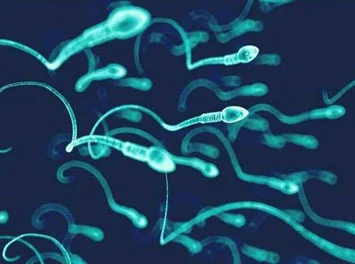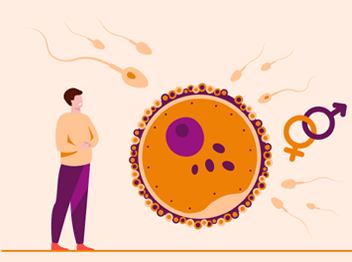- Click to Chat
- +91-8409205358
-
Shivay Chikitsalaya, Kokar Ranchi
Male Infertility Treatment in Ranchi
Dr. Vikash Kumar is Male infertility doctor in Ranchi, Dr. Vikash Kumar who is specialist in Ayurveda and has experience of more than 6 years. It is located near Shree Ayurveda Vatika, Booty More Road, Ranchi. He is available from Monday to Sunday from 10 AM to 8 PM. His phone number is 062023 83906.
Make an appointment at Ranchi's leading male infertility treatment center. Our experienced doctors are here dedicated to helping you start or expand your family. With cutting-edge technology and personalized treatment plans tailored to your specific needs, we offer hope and solutions to those struggling with male and female infertility. Don't let infertility define your future - take the first step towards parenthood with our trusted sexologist doctor in Ranchi.
Male infertility refers to the inability of a man to impregnate a fertile female partner. It is estimated that male factor infertility contributes to about 40-50% of all infertility cases.About the Clinic: Shivay Sex Clinic in Ranchi is a leading diagnostic, sexual and reproductive clinic dedicated to the health care of men of all ages. The clinic offers a wide range of services covering both male and female infertility Treatment in Ranchi, their management and treatment. Dr. Vikash is male infertility specialist in Ranchi city. Dr. Vikash has been practicing medicine for the last 10 years and has extensive experience in male infertility treatment and female infertility treatment. Get your male infertility treatment in Ranchi at Shivaay Sex Clinic, Ranchi. Book your appointment online for our male doctor Vikash Kumar and take the first step towards a happier, healthier future.
There can be various causes of male infertility, including:
- Sperm abnormalities: Problems with sperm production, shape, or motility can affect fertility. Low sperm count (oligospermia), poor sperm motility (asthenospermia), and abnormal sperm shape (teratospermia) are common issues.
- Hormonal imbalances: Hormonal disorders, such as low testosterone levels or abnormal levels of follicle-stimulating hormone (FSH) and luteinizing hormone (LH), can affect sperm production and fertility.
- Genetic factors: Certain genetic conditions can cause male infertility. Examples include Klinefelter syndrome, Y chromosome deletions, and cystic fibrosis gene mutations.
- Varicocele: This is a condition characterized by the enlargement of veins within the scrotum, which can lead to poor sperm quality and decreased fertility.
- Infections: Infections of the reproductive organs, such as epididymitis or sexually transmitted infections (STIs), can affect sperm production and function.
- Ejaculation disorders: Problems with ejaculation, such as retrograde ejaculation (where semen enters the bladder instead of being expelled) or erectile dysfunction, can contribute to infertility.
Treatment options for male infertility depend on the underlying cause and may include:
- Lifestyle changes: Adopting a healthy lifestyle, including regular exercise, a balanced diet, reducing alcohol and tobacco consumption, and managing stress, can improve fertility.
- Medications: Certain medications can help treat hormonal imbalances and stimulate sperm production. For example, gonadotropin injections can increase sperm count in men with low levels of FSH and LH.
- Surgery: Surgical interventions may be necessary to correct certain conditions causing infertility. For example, varicocele repair can improve sperm quality and motility.
- Assisted reproductive techniques: In cases where natural conception is not possible, assisted reproductive technologies (ART) can be used. These include techniques such as intrauterine insemination (IUI), in vitro fertilization (IVF), and intracytoplasmic sperm injection (ICSI).
- Sperm retrieval: When a man has no sperm in his ejaculate due to blockages or other issues, sperm can be retrieved directly from the testicles or epididymis for use in ART procedures.

